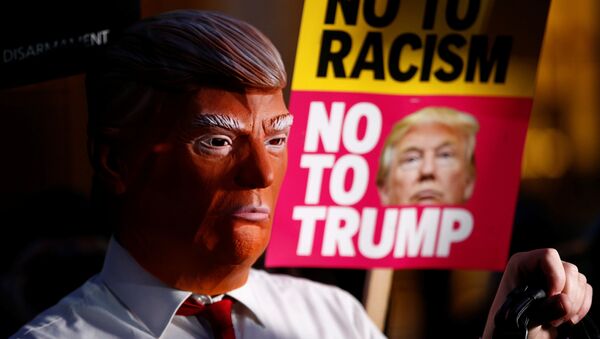Though the first group of six people saw the felony charges dropped, they still face five other charges of property damage, including two misdemeanors, Vice News reported.
Offering his analysis of the proceedings, Chip Gibbons, policy and legislative counsel for Defending Rights & Dissent, told Radio Sputnik's Loud & Clear that the trial essentially "has next to no factual argument."
"In this case there is very little factual dispute," Gibbons told show hosts Brian Becker and John Kiriakou. "Everybody agrees the six people were marching in the anti-capitalist/anti-fascist march. Everyone agrees that there was damage to the Starbucks and the Bank of America… and everyone agrees that the six people didn't do it… they had no weapons, they weren't at the planning meeting."
Chiming in, Alex Rubenstein, a freelance journalist who was arrested while covering the demonstration, says that the prosecution is basically arguing that anyone who choose to stay in the proximity helped to promote the riots.
But this simply isn't true, says Rubenstein.
"There was no dispersal order," he said. "It was complete coraling and kettling and little opportunity for people to leave the area."
On January 20, 230 people were arrested. Many have already either pleaded guilty or been let off charges, and an estimated 188 are still facing charges, Vice News reported.


